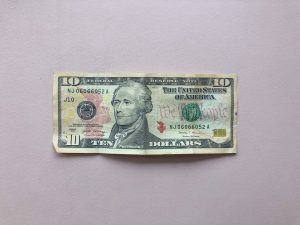China’s Forex Reserves and their Significance in the Country’s International Trade and Investment Strategies
China, as the world’s second-largest economy, plays a crucial role in the global financial market. One of the key factors that contribute to China’s influential position is its vast foreign exchange reserves. China’s forex reserves, also known as foreign currency reserves, are the assets held by the central bank and other financial institutions denominated in foreign currencies. These reserves serve as a buffer for the country’s economy and play a significant role in its international trade and investment strategies.
China’s forex reserves have been growing steadily over the years, making it the largest holder of foreign exchange reserves globally. As of August 2021, China’s forex reserves stood at around $3.2 trillion, a substantial increase from previous years. The accumulation of such reserves is a result of China’s persistent trade surplus, foreign direct investments, and inflows of foreign capital.
One of the primary purposes of holding substantial forex reserves is to maintain stability in the country’s domestic currency, the Chinese yuan or renminbi (RMB). The central bank, the People’s Bank of China (PBOC), intervenes in the foreign exchange market to control the value of the RMB. By buying or selling foreign currencies, the PBOC can influence the exchange rate and prevent significant fluctuations. This stability is crucial for China’s international trade as it provides confidence to foreign investors and trading partners.
China’s forex reserves also serve as a safeguard against external shocks and financial crises. The reserves act as a cushion to support the economy during times of economic downturns or capital outflows. For instance, during the global financial crisis in 2008, China’s forex reserves played a vital role in stabilizing its economy and mitigating the impact of the crisis. The reserves were used to provide liquidity to the banking system, support domestic investments, and maintain the value of the RMB.
Furthermore, China’s forex reserves are employed to manage the country’s external debt. Holding a significant amount of foreign assets allows China to service its external debt obligations and reduce its vulnerability to debt crises. It provides the country with the necessary liquidity to meet any foreign currency denominated debt payments.
China’s forex reserves also play a crucial role in its international trade and investment strategies. With substantial reserves, China can enhance its economic competitiveness by supporting its exports. The central bank can use the reserves to intervene in the foreign exchange market and maintain a competitive exchange rate, making Chinese exports more affordable for foreign buyers. This strategy helps boost China’s export-led growth model and supports its manufacturing sector.
Moreover, China’s forex reserves are used to finance strategic investments abroad. The country has been actively pursuing outbound investments, particularly in sectors such as infrastructure, energy, and technology. The reserves provide the necessary capital to fund these investments and promote China’s economic interests globally. By investing in foreign countries, China aims to secure access to resources, expand its geopolitical influence, and diversify its investment portfolio.
In recent years, China has also been promoting the internationalization of its currency, the RMB. The substantial forex reserves held by China play a significant role in this process. The reserves provide a solid foundation for the RMB’s stability and liquidity, making it an attractive currency for international trade and investment. As China continues to open up its financial markets and promote the use of the RMB, its forex reserves will play a crucial role in supporting the currency’s internationalization.
In conclusion, China’s forex reserves hold immense significance in the country’s international trade and investment strategies. They serve as a buffer for its economy, provide stability to its currency, and support its export-led growth model. The reserves also act as a safeguard against external shocks and crises, enable the management of external debt, and facilitate strategic investments abroad. As China continues to exert its influence on the global financial market, its forex reserves will remain a crucial tool in achieving its economic objectives and maintaining stability in the international financial system.






